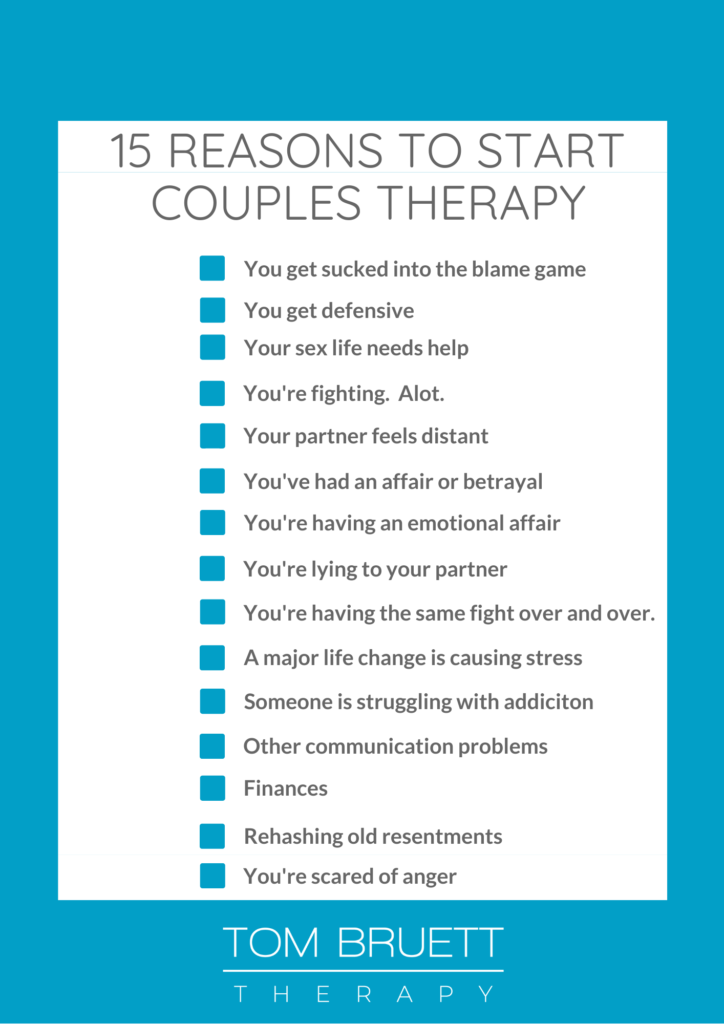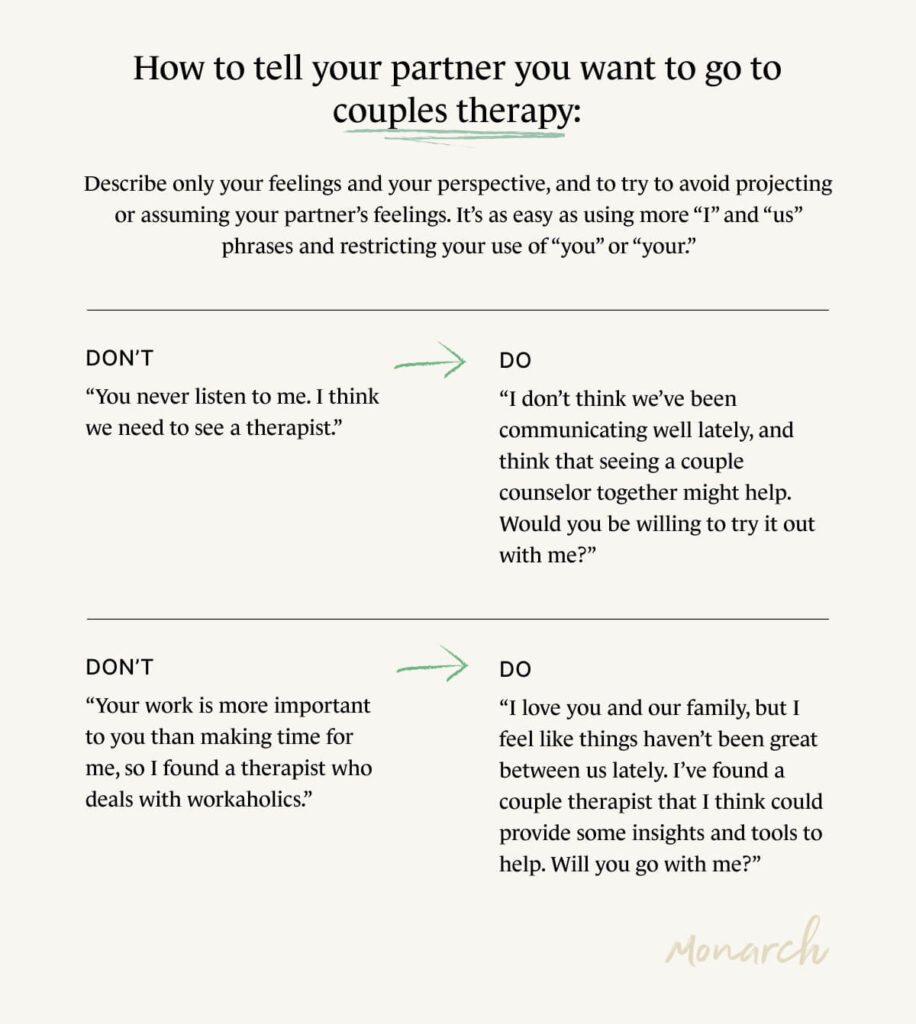
So you and your partner have hit a bump in the road, and you’re wondering if couples therapy is the answer. It’s a common question that many couples find themselves asking. “Should We Go To Couples Therapy?” is designed to help you navigate through this crucial decision-making process with its expert advice and insights. From understanding the benefits of therapy to exploring different approaches and finding the right therapist, this article will empower you to make an informed choice that could potentially reignite the spark in your relationship. Let’s embark on this journey together and discover if couples therapy is the solution you’ve been seeking.
Signs that indicate the need for couples therapy
Frequent and unresolved conflicts
One of the clear signs that indicate the need for couples therapy is experiencing frequent and unresolved conflicts in your relationship. This could be an indication that there are underlying issues that need to be addressed, and a skilled therapist can help you and your partner navigate through these conflicts in a healthy and productive way.
Lack of effective communication
Another sign that couples therapy may be beneficial is when there is a lack of effective communication within the relationship. Communication is the foundation of a healthy and strong partnership, and when it breaks down, it can lead to misunderstandings, resentment, and frustration. A couples therapist can provide guidance and tools to improve communication skills and foster better understanding between you and your partner.
Emotional disconnection
Feeling emotionally disconnected from your partner can be a distressing experience. If you find yourself feeling distant or detached from your partner, couples therapy can help you reconnect and rebuild emotional intimacy. A therapist can guide you in exploring the underlying reasons for the disconnection and provide strategies to strengthen the emotional bond between you and your partner.
Trust issues
Trust is vital in any relationship, and when trust is broken or diminished, it can be challenging to rebuild. If you or your partner are struggling with trust issues, couples therapy can provide a safe space to address these concerns, heal the wounds caused by the betrayal, and work towards rebuilding trust and rebuilding a healthy relationship.
Infidelity
Discovering that your partner has been unfaithful can be devastating and can have a profound impact on your relationship. Couples therapy can be a valuable resource for navigating the complex emotions and challenges that arise in the aftermath of infidelity. A therapist can help you and your partner address the underlying issues that may have contributed to the infidelity and support you in working towards forgiveness, healing, and rebuilding a solid foundation of trust.
Benefits of couples therapy
Improved communication skills
One of the primary benefits of couples therapy is the improvement of communication skills. A skilled therapist will teach you and your partner effective communication techniques, such as active listening, expressing emotions clearly, and problem-solving together. As you develop these skills, you’ll find that communication becomes more open, honest, and constructive, leading to a deeper understanding and connection with your partner.
Deeper emotional connection
Couples therapy can also help you and your partner develop a deeper emotional connection. Through therapy, you’ll have the opportunity to explore and express your emotional needs, vulnerabilities, and desires. A therapist can guide you in understanding each other’s emotional worlds and provide tools to foster empathy, compassion, and intimacy. This deeper emotional connection can enhance overall relationship satisfaction and create a stronger bond between you and your partner.
Conflict resolution
Conflicts are inevitable in any relationship. However, couples therapy can equip you and your partner with the tools necessary to resolve conflicts in a healthy and productive manner. A therapist can help you identify and understand the underlying issues contributing to the conflicts, facilitate effective communication, and teach you techniques for finding mutually beneficial resolutions. Learning how to navigate conflicts together can strengthen your relationship and lead to increased harmony and understanding.
Rebuilding trust
If trust has been damaged or broken in your relationship, couples therapy can be instrumental in the process of rebuilding trust. A therapist can help both partners explore and address the underlying issues that led to the breach of trust, develop a plan for rebuilding trust, and provide guidance on setting and maintaining healthy boundaries. With commitment, patience, and the guidance of a therapist, trust can be regained, strengthening the foundation of your relationship.
Developing healthier relationship patterns
Couples therapy can support you and your partner in developing healthier relationship patterns. Through therapy, you’ll gain insight into unhelpful patterns or dynamics that may be contributing to relationship challenges. A therapist can guide you in identifying and modifying negative behaviors, fostering healthy communication and conflict resolution skills, and promoting a mutual understanding and respect. By replacing unhealthy patterns with healthier ones, you can create a more fulfilling and satisfying relationship.

This image is property of tombruetttherapy.com.
Different approaches to couples therapy
Psychodynamic therapy
Psychodynamic therapy focuses on uncovering and resolving unconscious conflicts that may be affecting your relationship. It explores the impact of past experiences and the influence of unresolved emotions on your current relationship dynamics. Through this approach, couples can gain insight into how their individual histories shape their interactions as a couple and work towards resolving underlying issues.
Cognitive-behavioral therapy (CBT)
Cognitive-behavioral therapy (CBT) is a goal-oriented, practical approach to couples therapy. It focuses on identifying and challenging unhelpful thoughts and beliefs that contribute to relationship problems. CBT also involves teaching couples new skills and strategies for managing conflicts, improving communication, and changing negative patterns of behavior, resulting in healthier relationship dynamics.
Emotionally focused therapy (EFT)
Emotionally focused therapy (EFT) emphasizes the attachment bond between partners and aims to strengthen emotional connections within the relationship. This approach focuses on identifying and addressing underlying emotions and needs, providing couples with tools to communicate and foster a secure attachment. EFT can be particularly helpful for couples struggling with emotional disconnection and conflict.
Imago Relationship Therapy
Imago Relationship Therapy is based on the belief that we are drawn to partners who mirror unfinished aspects of ourselves. This approach aims to help couples understand and heal unresolved childhood wounds that may be affecting their relationship. Imago Relationship Therapy focuses on creating empathy, understanding, and healing within the relationship by fostering deeper connection and mutual growth.
Gottman Method Couples Therapy
Gottman Method Couples Therapy is an evidence-based approach that focuses on building friendship, managing conflict, and creating shared meaning in a relationship. This approach involves assessment tools to identify relationship strengths and areas for improvement. Therapists trained in the Gottman Method teach couples skills for enhancing friendship, managing conflicts effectively, and nurturing the emotional bond in the relationship.
Choosing the right therapist
Credentials and qualifications
When choosing a couples therapist, it is essential to consider their credentials and qualifications. Look for therapists who have advanced training and certification in couples therapy. Credentials such as Licensed Marriage and Family Therapist (LMFT) or Licensed Clinical Social Worker (LCSW) indicate that the therapist has received specialized training in working with couples.
Experience with couples therapy
It is crucial to find a therapist who has experience working with couples. Couples therapy requires a unique set of skills and techniques that differ from individual therapy. Ask potential therapists about their experience specifically in couples therapy, including the number of years they have been practicing and the number of couples they have worked with.
Compatibility with both partners
Finding a therapist who is compatible with both you and your partner is essential for successful couples therapy. During the initial session or phone consultation, pay attention to how comfortable you feel speaking with the therapist and how well they understand your concerns. A good fit between you, your partner, and the therapist will enhance the effectiveness of the therapy process.
Referrals and recommendations
Consider seeking referrals and recommendations from trusted sources such as friends, family, or healthcare professionals. Personal recommendations can provide valuable insights into the therapist’s effectiveness and style. Online reviews and ratings can also be a helpful resource when researching potential therapists.
Affordability and insurance coverage
Before beginning couples therapy, it is essential to consider the affordability of therapy sessions and the therapist’s insurance coverage. Couples therapy can be a significant financial investment, so it is important to discuss fees and payment options with the therapist. Additionally, check with your insurance provider to determine if couples therapy is covered and what portion of the cost you will be responsible for.

This image is property of advancedpsychiatryassociates.com.
Preparing for couples therapy
Identifying relationship goals
Before starting couples therapy, take the time to identify your relationship goals. Discuss with your partner what changes or improvements you hope to achieve through therapy. Identifying these goals together can help guide the therapy process and keep you both focused and motivated.
Determining commitment level
Couples therapy requires a commitment from both partners to actively participate and invest in the process. Reflect on your commitment level and discuss with your partner if you are both willing to put in the time, effort, and emotional energy needed for couples therapy. Understanding the level of commitment from both partners will ensure that expectations align and increase the chances of a successful outcome.
Openness to change
Couples therapy often involves exploring and challenging long-held beliefs and behaviors. It requires a willingness to be open to change and to examine your own role and contribution to relationship difficulties. Reflect on your readiness to explore new perspectives and be open to trying new ways of relating to your partner.
Willingness to take responsibility
Taking responsibility for your actions and behaviors is an important aspect of couples therapy. Reflect on your willingness to acknowledge and take ownership of your part in relationship challenges. Couples therapy can be an opportunity to cultivate self-awareness, personal growth, and accountability within the relationship.
Setting realistic expectations
It’s important to have realistic expectations when entering couples therapy. Understand that therapy is not a quick fix and that resolving deep-seated issues takes time. Setting realistic expectations will help you and your partner stay committed to the process and remain patient as you work towards positive change.
What to expect in couples therapy sessions
Initial assessment and intake
The first couple of sessions of couples therapy typically involve an initial assessment and intake process. During this time, the therapist will gather information about each partner’s background, relationship history, and the concerns that brought you to therapy. This assessment helps the therapist gain a comprehensive understanding of the relationship dynamics and tailor the therapy approach to your specific needs.
Establishing a therapeutic alliance
A key aspect of couples therapy is establishing a strong therapeutic alliance between you, your partner, and the therapist. The therapist will create a safe and non-judgmental space where both partners feel heard and validated. This alliance is essential for establishing trust, promoting open communication, and creating an environment conducive to growth and healing.
Identifying issues and patterns
In couples therapy, the therapist will help you and your partner identify and explore the underlying issues and patterns that contribute to relationship difficulties. By uncovering these patterns, you can gain insight into the dynamics that perpetuate conflicts and devise strategies for positive change.
Learning and practicing new skills
Couples therapy often involves learning and practicing new skills that will facilitate healthier communication, conflict resolution, and emotional connection. The therapist may teach specific techniques, such as active listening, effective expression of emotions, and problem-solving strategies. Regular practice of these skills outside of therapy sessions can help integrate them into your daily interactions and enhance the overall effectiveness of therapy.
Exploring emotions and vulnerabilities
Couples therapy provides a safe space for both partners to explore and express their emotions and vulnerabilities. The therapist will guide you and your partner in deepening your understanding of each other’s emotions and needs. This exploration fosters empathy, compassion, and intimacy and allows you to develop a deeper emotional connection, leading to a more fulfilling relationship.

This image is property of images.ctfassets.net.
Challenges and potential setbacks in couples therapy
Resistance to change
Resistance to change can be a significant challenge in couples therapy. It is common for individuals to feel uncomfortable or resistant when faced with the need to change long-held beliefs or behaviors. The therapist will work collaboratively with you and your partner to address this resistance, providing guidance and support throughout the process.
Lack of participation
For couples therapy to be effective, both partners need to actively participate in the therapy process. It can be challenging if one partner is reluctant or unwilling to engage fully. The therapist will work with you and your partner to address any barriers to participation and encourage active involvement, as the success of therapy often relies on the commitment and engagement of both partners.
Unequal power dynamics
Unequal power dynamics within a relationship can present challenges in couples therapy. If one partner has more control or influence over decision-making processes, it can hinder open communication and the therapeutic process. The therapist will strive to create a balanced and egalitarian space for both partners to express themselves and work towards equalizing power dynamics within the relationship.
Ineffective communication between therapist and couple
Occasionally, couples may experience challenges in effectively communicating their concerns to the therapist. It is essential to maintain open lines of communication with the therapist and voice any concerns about the therapy process. The therapist should be receptive to feedback and continuously check-in to ensure that they are hearing and understanding both partners correctly.
Unresolved underlying individual issues
Sometimes, unresolved individual issues can complicate couples therapy. If one or both partners are dealing with unresolved traumas, mental health concerns, or substance abuse issues, it can impact the progress of couples therapy. In these cases, the therapist may recommend individual therapy to address these underlying issues before fully engaging in couples therapy.
When couples therapy may not be the best option
Severe abuse or violence
Couples therapy is not appropriate when there is severe abuse or violence within the relationship. In cases of domestic violence or ongoing abuse, the safety of both partners must be the priority. It is crucial to seek specialized support, such as domestic violence counseling or contacting a helpline, to ensure the safety and well-being of the victim.
One partner not willing to participate
Couples therapy requires the active participation and commitment of both partners. If one partner is not willing to participate or invest in the therapy process, it can hinder progress. In these situations, individual therapy may be a more appropriate option for the willing partner to address personal growth and relationship concerns.
Unresolved addiction issues
Unresolved addiction issues can significantly impact the effectiveness of couples therapy. If one or both partners are struggling with substance abuse or addiction, addressing these issues in individual therapy or a specialized addiction treatment program may be necessary before engaging in couples therapy.
Irreparable relationship damage
In some cases, the damage to the relationship may be irreparable, and couples therapy may not be the most suitable option. If both partners have extensively tried to work on the relationship without success or if there has been a significant betrayal that cannot be forgiven, it may be better to pursue individual therapy to focus on healing and moving forward.
Individual mental health concerns
Individual mental health concerns that significantly affect one or both partners can impact the progress of couples therapy. If untreated mental health issues, such as depression, anxiety, or personality disorders, are severely impacting the individual or the relationship, it may be necessary to prioritize individual therapy or a combination of individual and couples therapy.

This image is property of cdn.psychologytoday.com.
Alternative options to couples therapy
Individual therapy
Individual therapy can be a valuable alternative or supplement to couples therapy. By seeking individual therapy, each partner can focus on their individual goals, concerns, and personal growth. Individual therapy can provide a space for greater self-reflection, exploration of personal dynamics, and the development of necessary skills to enhance the overall relationship.
Mediation
Mediation is a beneficial option for couples who are experiencing conflicts and disputes but do not require traditional therapy. Mediators are trained professionals who can impartially facilitate discussions and guide couples towards finding mutually agreeable resolutions. Mediation can be particularly useful for addressing specific issues, such as financial disagreements or co-parenting arrangements.
Workshops and retreats
Workshops and retreats focused on relationship enrichment can provide couples with intensive experiences to strengthen their bond and learn valuable skills. These programs often offer a combination of educational sessions, interactive exercises, and opportunities for open communication. Participating in a workshop or retreat can provide a focused and immersive experience to enhance your relationship.
Self-help books and online resources
Self-help books and online resources can be a cost-effective and accessible alternative to couples therapy. There are numerous books and websites available that provide guidance, exercises, and strategies to improve relationships. While self-help resources may not offer the personalized support of a therapist, they can be a valuable starting point for couples who are motivated to work on their relationship.
Religious or spiritual guidance
Some couples may find solace and guidance in seeking religious or spiritual support within their community. Religious leaders or spiritual advisors can provide counseling and direction in line with their particular beliefs and values. This alternative option can be particularly meaningful for couples who derive strength and guidance from their faith or spirituality.
Making the decision to go to couples therapy
Open and honest communication
The decision to go to couples therapy should be made through open and honest communication between you and your partner. Discuss your concerns, desires, and expectations for therapy. Ensure that both partners feel comfortable expressing their thoughts and emotions and that both are motivated to work on the relationship together.
Mutual desire to work on the relationship
For couples therapy to be effective, both partners must have a mutual desire to work on the relationship. Both individuals should be invested and committed to facing challenges and making necessary changes. A shared commitment to the therapy process will contribute to a more collaborative and successful outcome.
Belief in the potential for positive change
When considering couples therapy, it is important to hold a belief in the potential for positive change within the relationship. Although challenging, therapy can provide a transformative experience and lead to a healthier and more fulfilling partnership. Maintaining hope and optimism will fuel your commitment and motivation throughout the therapy process.
Willingness to invest time and effort
Couples therapy requires time, effort, and emotional energy. Reflect on your willingness to dedicate these resources to the therapy process. Discuss with your partner the potential time commitment and ensure that both individuals are willing to prioritize therapy in their schedules.
Evaluation of the potential benefits
Consider the potential benefits that couples therapy can offer your relationship. Reflect on the improvements you hope to see and the impact these changes could have on your overall well-being. Weighing the potential benefits against the challenges and sacrifices involved in therapy can help you and your partner make an informed decision.
In conclusion, couples therapy can be a valuable tool for couples seeking to strengthen their relationship, improve communication, resolve conflicts, and create a healthier partnership. By recognizing the signs that indicate the need for therapy, understanding its benefits, exploring different therapy approaches, choosing the right therapist, and preparing for therapy, couples can embark on a transformative journey towards a fulfilling and lasting connection. Whether you decide to pursue couples therapy or explore alternative options, the ultimate goal is to create a relationship that is nurturing, respectful, and deeply fulfilling for both partners.






